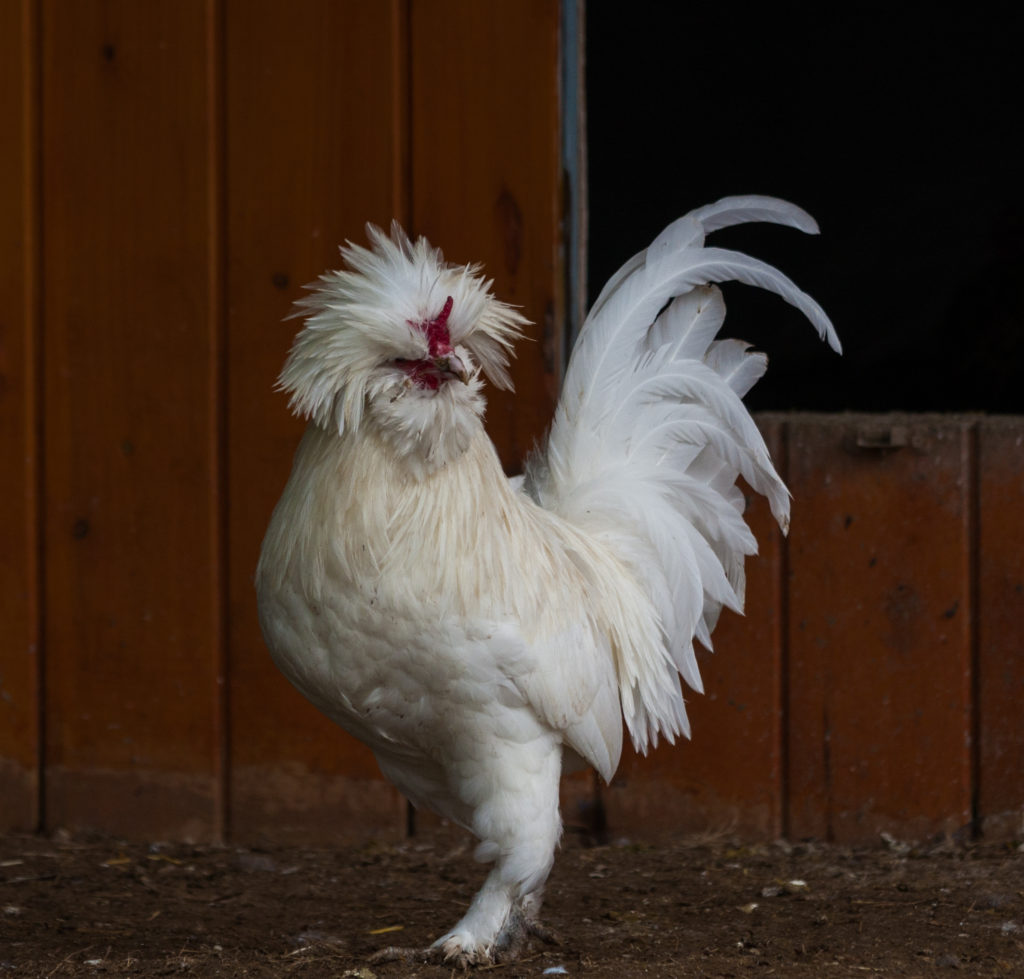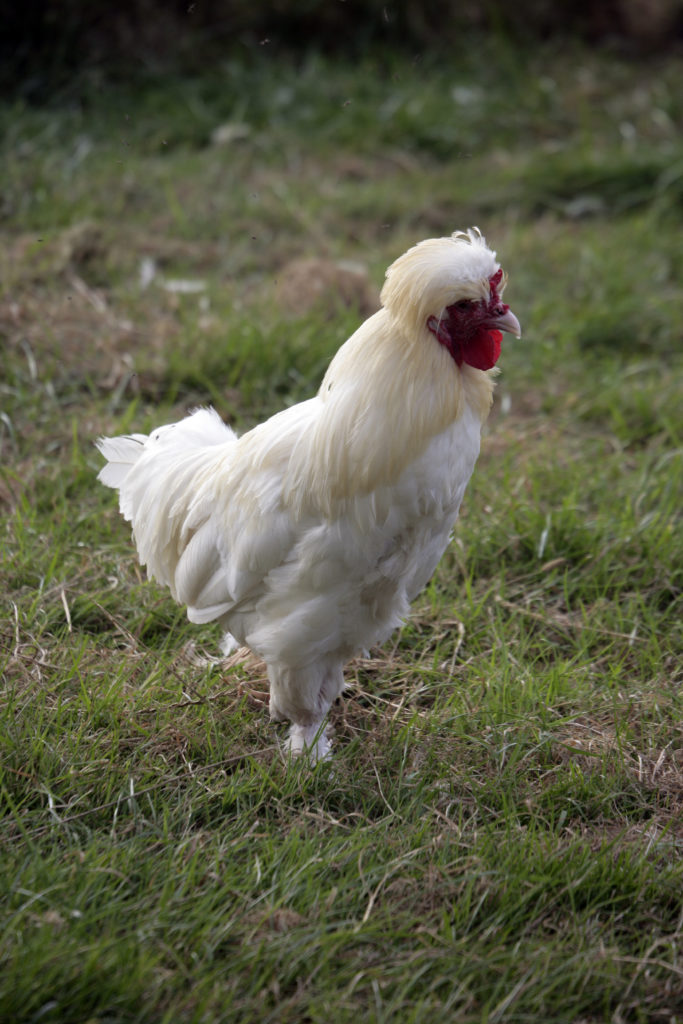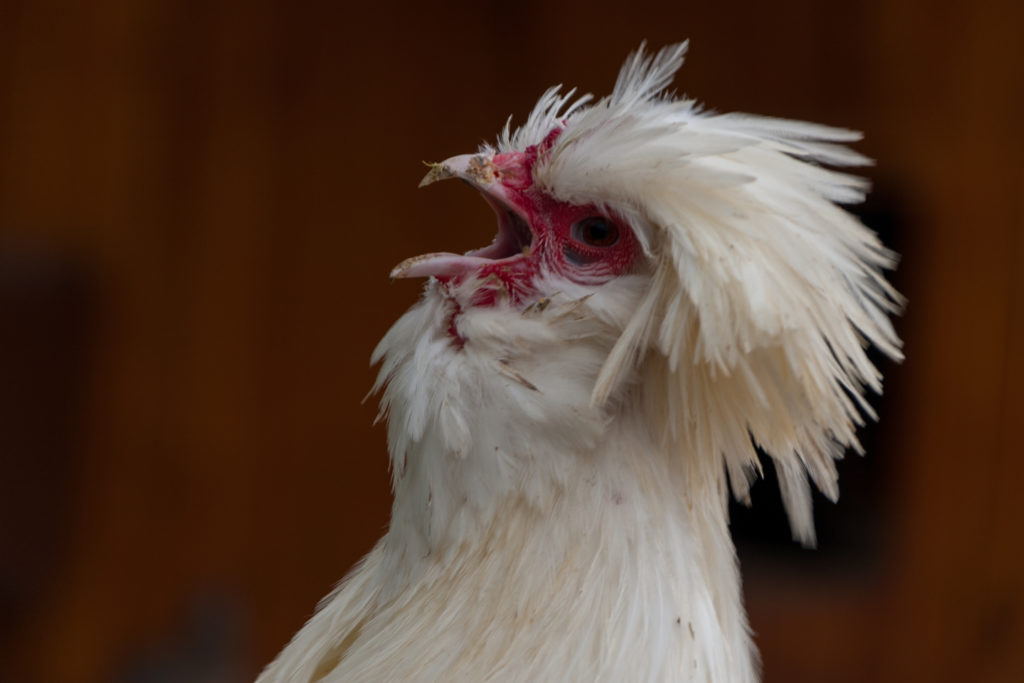The Sultan or Serai Taook
Part of our Breed Profiles series, the Sultan chicken originated in Turkey as an ornamental bird.

History
The breed first arrived from Turkey to England in 1854. Known as the Serai Taook in Turkey, this rare breed had been bred as an ornamental meat bird for the royal court in Istanbul.
Elizabeth Watts, editor of the The Poultry Chronicle, had been gifted several birds from a friend in Istanbul. She successfully bred them in England and descendants of those birds were brought to the U.S. in 1867 where George Brown noted that they were quite tame birds with pleasant dispositions. Sultans were recognized as a distinct breed by the American Poultry Association in 1874.
Characteristics
Primary Use: Ornamental, rare
Temperament: Calm, easy to tame
Size: Large fowl and bantam varieties,
Egg production annually: 50-60
Egg Color: large white
Average Weight: Small size in large fowl, females weigh 4lbs, males 6 lbs
Physical features
These lovely birds have a v-shaped comb, crest, beard, ear muffs, feathered legs, and 5 toes. Their shanks and toes are slate blue underneath the feathers.
The APA only recognized the white variety, however, due to crosses with Polish chickens, Blue and Black Sultans have been produced.

Sultan hen, Warwickshire, England. Getty images.
They lay well from March to Sept in northern hemisphere. Sometimes used at table bird as they are large breasted with delicately flavoured meat.
Easy bird to show as they are calm and allow judges to hold and exam them.
Broodiness
Sultans are poor layers overall and equally poor brooders. Your best bet for breeding them is to incubate the eggs as the hens rarely sit their nests.
Health and Safety
While Sultans are not cold hardy, they do tolerate heat quite well. They also work well in confined runs and coop spaces, making them ideal for small back yard ornamental birds.

Further Resources
Carol Ekarius, Storey’s Illustrated Guide to Poultry Breeds













4 Comments
We got a Sultan female with our very first chickens- 6 SR Bantams. We kept them in a dog kennel pen and opened the door every day so they could free range. Lyle (we thought she was a he) didn’t come out with the other chickens for an entire year! She was such a “different” chicken we thought she had brain damage or something. But one day she just blossomed, and became one of the “gang”. We really loved her and have wanted another Sultan ever since.
I raise and breed Sultan. They are an amazing breed. Early Bird Acres, the Sultans Palace USA on Facebook!
Ohh,I got one sultan chicken in my backyard chicken coop I bought on coziwow.com, they seem to like this house and grow up fast
Hi I already have a male Sultan but I looking for a female chicken for him .If someone know about one please let me know I’m interested to buy one . Thanks